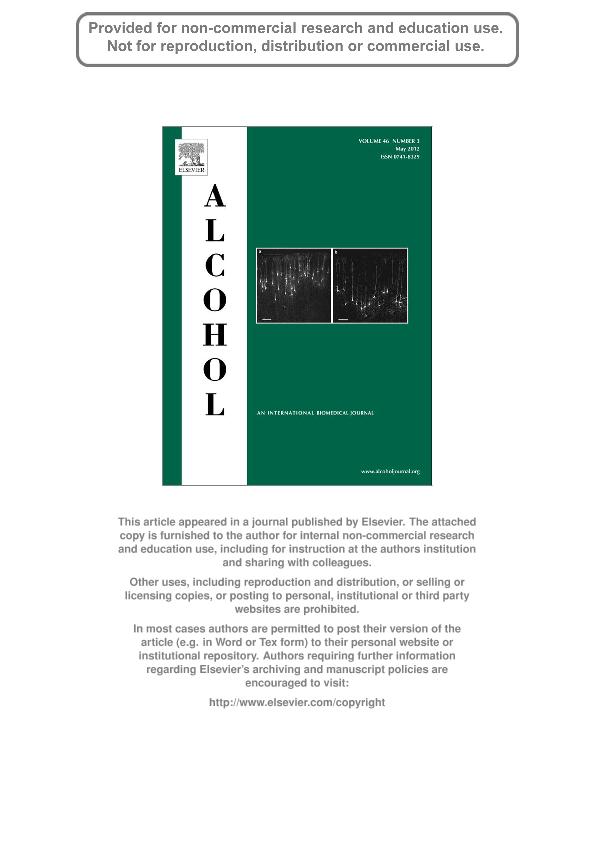Artículo
Ontogenetic differences in ethanol's motivational properties during infancy
Nizhnikov, Michael; Pautassi, Ricardo Marcos ; Varlinskaya, Elena I.; Rahmani, Pouyan; Spear, Norman E.
; Varlinskaya, Elena I.; Rahmani, Pouyan; Spear, Norman E.
 ; Varlinskaya, Elena I.; Rahmani, Pouyan; Spear, Norman E.
; Varlinskaya, Elena I.; Rahmani, Pouyan; Spear, Norman E.
Fecha de publicación:
04/2012
Editorial:
Elsevier Science Inc.
Revista:
Alcohol
ISSN:
0741-8329
Idioma:
Inglés
Tipo de recurso:
Artículo publicado
Clasificación temática:
Resumen
Pairing a conditioned stimulus (CS) with ethanol generally produces aversion for that CS in adult rodents. However, infant rats (PD1-PD3) exposed to ethanol demonstrate appetitive reinforcement to ethanol (Nizhnikov, Varlinskaya, Petrov, & Spear, 2006; Petrov, Varlinskaya, & Spear, 2003). This sensitivity to the appetitive properties of ethanol during infancy may be transient, as during the second postnatal week rat pups tend to exhibit conditioned aversions to flavors paired with ethanol. The present study examined changes in the motivation properties of ethanol through ontogeny and the neurobiology underlying these changes. Rat pups were exposed to a taste conditioning procedure on PD4 or PD12. Rat pups were intraorally infused with 2.5% of their body weight of saccharin solution (0.1%) and immediately after injected intraperitoneolly (i.p.) with one of six doses of ethanol (0.0-2.0 g/kg). A day later pups were given saccharine infusions and percent body weight gain was used as an index of ethanol's reinforcing effects. PD4 pups expressed appetitive reinforcement to ethanol, as indicated by greater saccharin intake, as compared to control counterparts and to the older PD12 pups. Subsequent experiments revealed that PD4 pups were less sensitive to the aversive properties of the drug than PD12 pups. The older pups found high doses of ethanol aversive while PD4 rat pups did not condition aversions to this dose of ethanol after a single trial. A similar pattern of results was observed between the low doses of ethanol and the highest doses of a kappa opioid agonist. The PD12 animals did not condition to the kappa opioid agonist, while the younger rats expressed an appetitive response. These results illustrate an ontogenetic change in the motivational properties of ethanol, with sensitivity to its appetitive properties declining and responsiveness to the aversive properties increasing with age during early infancy.
Palabras clave:
APPETITIVE
,
AVERSIVE
,
ETHANOL
,
INFANT
,
KAPPA
,
OPIOID
,
RAT
,
REINFORCEMENT
Archivos asociados
Licencia
Identificadores
Colecciones
Articulos(INIMEC - CONICET)
Articulos de INSTITUTO DE INV. MEDICAS MERCEDES Y MARTIN FERREYRA
Articulos de INSTITUTO DE INV. MEDICAS MERCEDES Y MARTIN FERREYRA
Citación
Nizhnikov, Michael; Pautassi, Ricardo Marcos; Varlinskaya, Elena I.; Rahmani, Pouyan; Spear, Norman E.; Ontogenetic differences in ethanol's motivational properties during infancy; Elsevier Science Inc.; Alcohol; 46; 3; 4-2012; 225-234
Compartir
Altmétricas



